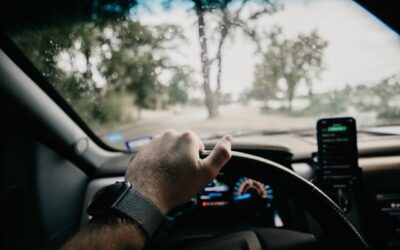Global Positioning System (GPS) tracking has become a ubiquitous part of modern life, offering the potential for increased convenience, security, and efficiency. However, despite its many advantages, there are significant downsides to GPS tracking that must be considered. This article delves into the various reasons why GPS tracking is bad, examining issues related to privacy, security, ethical concerns, and potential misuse.
Privacy Concerns
One of the most pressing issues associated with GPS tracking is the invasion of privacy. GPS devices can reveal an immense amount of personal information about an individual’s daily activities, habits, and whereabouts. This data can be collected, stored, and potentially misused in several ways:
- Constant Surveillance: GPS tracking can result in constant monitoring of an individual’s movements. This is particularly concerning when used in personal relationships where one partner may use GPS to control or stalk the other, leading to a significant invasion of personal privacy. The ability to track someone 24/7 can be deeply unsettling and may lead to increased anxiety and stress for the person being monitored.
- Data Collection by Companies: Many apps and services collect GPS data to provide targeted advertising or improve their services. However, this often occurs without explicit consent or understanding from the user, leading to unauthorised data collection and potential misuse of personal information. Users may be unaware of how their data is being used or shared with third parties, creating a lack of transparency and trust.
- Government Surveillance: There is a growing concern about the extent to which governments can utilise GPS tracking for surveillance purposes. While this can be useful for law enforcement, it also raises issues about the potential for abuse and the erosion of civil liberties. The balance between security and privacy is delicate, and excessive surveillance can lead to a society where individuals feel constantly watched and controlled.
Security Risks
Another major drawback of GPS tracking is the security risk it poses. The collection and storage of location data can create vulnerabilities that can be exploited by malicious actors:
- Hacking and Data Breaches: GPS data, like any other form of digital information, is susceptible to hacking. If a company’s database is breached, sensitive location information can be accessed and used for nefarious purposes, such as stalking, burglaries, or identity theft. The consequences of such breaches can be severe, leading to financial and emotional distress for the victims.
- Tracking Device Vulnerabilities: GPS devices, especially those used for asset tracking or in cars, can have vulnerabilities that can be exploited. Hackers can potentially take control of these devices or disable them, leading to theft or other security incidents. The integrity of the tracking system can be compromised, rendering it unreliable and unsafe.
- Identity Theft: Combining GPS data with other personal information can make it easier for identity thieves to create a comprehensive profile of an individual, facilitating more sophisticated and damaging forms of identity theft. The aggregation of data from various sources can lead to a complete invasion of privacy and loss of personal security.
Ethical Concerns
The ethical implications of GPS tracking are also significant. The technology can be used in ways that are morally questionable and potentially harmful:
- Employee Monitoring: Employers may use GPS tracking to monitor the movements and activities of their employees. While this can be justified in certain contexts, such as ensuring the safety of delivery drivers, it can also create a culture of mistrust and lead to the exploitation of workers by excessively monitoring their behavior. Employees may feel their privacy is invaded, leading to decreased morale and job satisfaction.
- Children and Teenagers: Parents might use GPS tracking to monitor their children’s movements. While this is often done with the best intentions, it can undermine trust and foster a sense of constant surveillance, which can be detrimental to a child’s development and sense of independence. Children may feel suffocated and rebel against such measures, leading to family conflicts.
- Use in Justice Systems: GPS tracking devices are increasingly being used in criminal justice systems to monitor individuals on parole or probation. While this can be beneficial in terms of public safety, it also raises ethical questions about the extent of control and surveillance that should be exerted over individuals who have served their time. The potential for abuse and discrimination in the justice system must be carefully considered.
Potential Misuse
The potential for GPS tracking to be misused is another significant concern. Even well-intentioned uses of the technology can have unintended and harmful consequences:
- Stalking and Harassment: GPS tracking can be easily misused for stalking and harassment. Whether in personal relationships, by strangers, or in cases of domestic abuse, GPS tracking can provide perpetrators with precise information about their victim’s location, making it easier to engage in harmful behavior. The psychological impact on victims can be profound, leading to fear and trauma.
- Corporate Espionage: In the business world, GPS tracking can be used for corporate espionage. Competitors might track the movements of key personnel to gain insights into business strategies or operations, leading to unfair competitive advantages and breaches of confidentiality. The integrity of business operations can be compromised, leading to financial losses and reputational damage.
- Manipulation and Control: GPS tracking can be used as a tool for manipulation and control in various contexts, from personal relationships to broader societal implications. This misuse can lead to significant psychological harm and a loss of autonomy for the individual being tracked. The ethical boundaries of using such technology must be clearly defined and respected to prevent abuse.
Conclusion
While GPS tracking offers numerous benefits, it is crucial to acknowledge and address the significant drawbacks associated with the technology. Privacy concerns, security risks, ethical issues, and the potential for misuse all highlight why GPS tracking can be bad.
Balance is key; the use of GPS tracking should be governed by stringent regulations and ethical guidelines to protect individuals’ rights and ensure that the technology is used responsibly. Awareness and understanding of these issues are essential for developing a society that leverages technological advancements while safeguarding personal freedoms and security.













